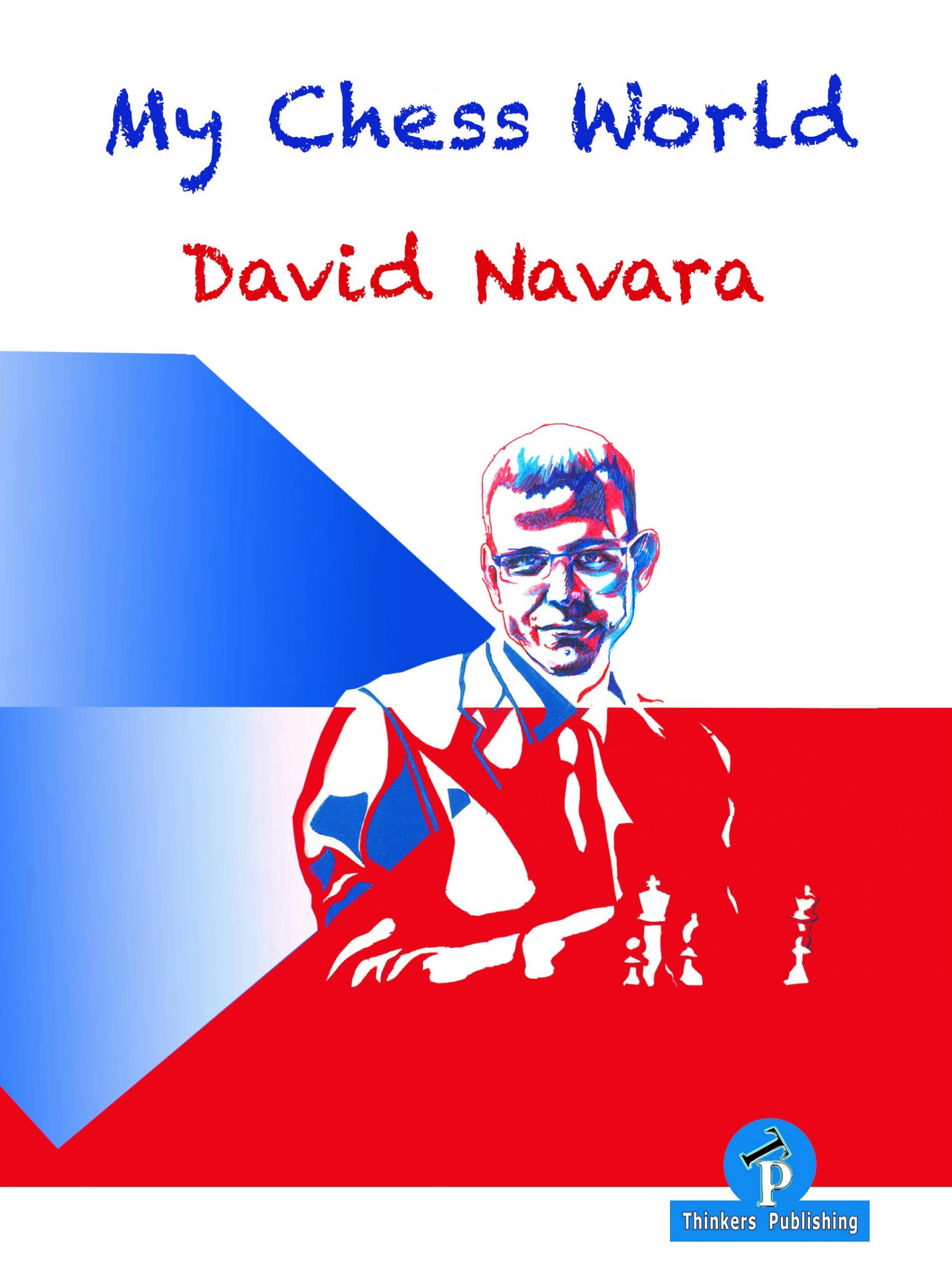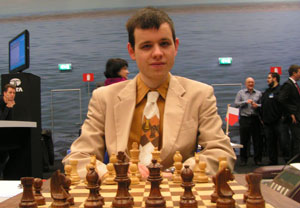
“Nine-time Czech champion David Navara, 35, became a grandmaster in 2002 at the age of sixteen. Amongst his many achievements are: 1st at the Ordix Open rapid tournament in Mainz, Germany, in 2007. World Cup quarterfinalist in 2011. Gold medal winner on 2nd board at the 2012 Chess Olympiad in Istanbul. Gold medallist with the Nový Bor team at the 2013 European Club Cup in Rhodes, Greece. Winner of the European Blitz Championship in Wrocław, Poland, in 2014. Silver medallist in the European Individual Championship in Jerusalem in 2015.”

From the rear cover :
“This book is not a pure (auto)biography, rather a games collection. It consists mainly of interesting high-class games played by me, including many losses. Most of the games are preceded by accompanying texts, which vary from essays to tournament reports. The title of the book might seem presumptuous, but I wanted to show how I see or experience the competitions without denying the chess worlds of others. While the texts are mostly light and subjective, at the same time I tried hard to stick to the facts and provide some food for thought. GM David Navara May 2020.”
David Navara is one of the most distinctive and popular personalities on the contemporary chess scene, renowned for his uncompromising play, for his politeness and friendliness, and, most of all, for his eccentricities. He’s been just below the world elite for the past 15 years or so, usually rated between 2700 and 2750.
In this chunky 600+ page book he offers us a collection of 64 (for Navara it could be no other number) games, chosen for their interest rather than the result, so you’ll find draws and losses as well as wins here. His opponents include many of today’s top grandmasters and a wide range of openings is represented.
Authors have a difficult decision to make about how detailed their analysis should be. Navara explains the dilemma nicely in what he calls the Navara Antinomy:
- Substantial games are interesting.
- Substantial games require extensive annotations.
- Extensive annotations are boring.
Yes, the annotations are pretty extensive, but the games are interesting enough to merit this. There are plenty of variations and sub-variations which, if you’re playing through the games, might be confusing unless you’re making use of a second board. You’ll discover a host of exciting middle games and, in particular, some fascinating endings.
One game that particularly drew my attention was his game with White against Radoslaw Wojtaszek from Biel 2015.
Not all games with early queen exchanges are dull. The moves up to 25. Kf6 were pre-game preparation, and by move 30 the white monarch reaches h8, which must be some sort of record for a top level game.
If you want to find out what was really happening in this game you’ll need to buy the book.
Navara likes to categorise chess games as either porridge (good for you but boring) or ice cream (tasty but not so healthy) and tells us both types are featured in the book. I think he’s, very typically, being too modest. Most of the games, like the one above, seem to me to be both tasty and good for you. A delicious main course of salmon, perhaps (Navara likes fish, especially Stockfish), or a refreshing fruit salad.
There’s no better way to end a meal than with a light sorbet. Here’s the conclusion of the last game of the book, against Vojtech Zwardon (Ostrava 2019).
How would you continue with White?
Full credit for 1. Qxg7+ Kxg7 2. Bf6+ and 3. Rh8#, but Navara preferred the cuter 1. Qh8+ Bxh8 2. Rxh8+ Kg7 3. Bf6#.
If you’re looking for a collection of top level games with excellent annotations, you won’t be disappointed with this book.
You get a lot more for your money, though. Most games are preceded by essays originally published on Navara’s chess blog (‘a blog past its sell-by date’) covering a wide variety of subjects: part travelogue, part tournament report, part meditation on chess and life.
You’ll find out a lot about the life of a chess player travelling round Europe, and occasionally further afield (Cuba, China) taking part in national and international team competitions as well as individual matches and tournaments.
There’s much more besides. As well as ‘Porridge and ice cream in Barcelona’ you’ll encounter ‘Sea hedgehogs’, ‘Swans on the top floor’ and ‘On Karl Marx and locking a bishop’.
The book is also full of humour, particularly verbal humour, which the translator has done well to render into English successfully. Humour is something very personal, and, I guess, you might find this aspect of the book either endearing or annoying. As for me, I love it. It’s great to meet someone who uses exactly the same jokes as I do.
Beyond the moves, then, this is, in many ways, a very personal book. The first few pages offer some biographical background. ‘I have no recollection of it, but according to reliable sources, I was born on 27 March 1985.’
He concludes this section: ‘I can’t drive or dance, and my knowledge of films and TV series is minimal.’ (Me too, David.) … ‘Chess is my choice. It has given me a lot: fun, success, friends, self-realisation, money, popularity, the chance to travel.’
At the end of the book he returns to the same theme, offering us a chess poem:
‘But still I remain like a child, who finds the outside world so wild. I still so much like to play chess, that it looks like both curse and bless.’
He concludes:
‘Chess has given me a lot. It can unite people of various nations, different ages, gender, political views, social and economic background or health conditions. It contains elements of art and some chess games are real masterpieces. (Of course they are rare, as masterpieces tend to be.) Chess might relieve the worries of everyday life, bring one good friends and uplift one’s spirit.
‘What more can you expect from a board game with seemingly simple rules?’
I think we can all, whatever our rating, agree with David Navara’s sentiments.
The book is well produced and enhanced with photographs of our hero. My one complaint, as so often, is the lack of an index. Perhaps I’m old-fashioned, but if I’m reading a games collection I’d like to be able to look up the games where Navara played Carlsen, or where he was on the black side of a Sicilian Defence.
What you do get is an excellently annotated games collection as well as an insight into the life and mind of a charming and unusual personality, who perceives the world with a mixture of child-like wonder and self-deprecating amusement. For me, it also provides the opportunity to meet someone who seems, in some respects, a kindred spirit.
I really enjoyed reading this book and finding out more about David Navara, both as a chess player and as a person. Very highly recommended.
Richard James, Twickenham, 13th July 2020

Book Details :
- Paperback : 616 pages
- Publisher: Thinkers Publishing; 1 edition (28 July 2020)
- Language: English
- ISBN-10: 9492510804
- ISBN-13: 978-9492510808
- Product Dimensions: 17 x 23.5 cm
Official web site of Thinkers Publishing

